We have been blessed in the past years by a growing partnership with the Armenian Evangelical Community in Syria. In an interview we asked Rev. Dr. Harout Selimian, president of the community, to reflect on the cooperation, the support of the Hungary Helps Program and the actual situation in the country. We are so grateful for this friendship and excited to see how it flourishes over time.
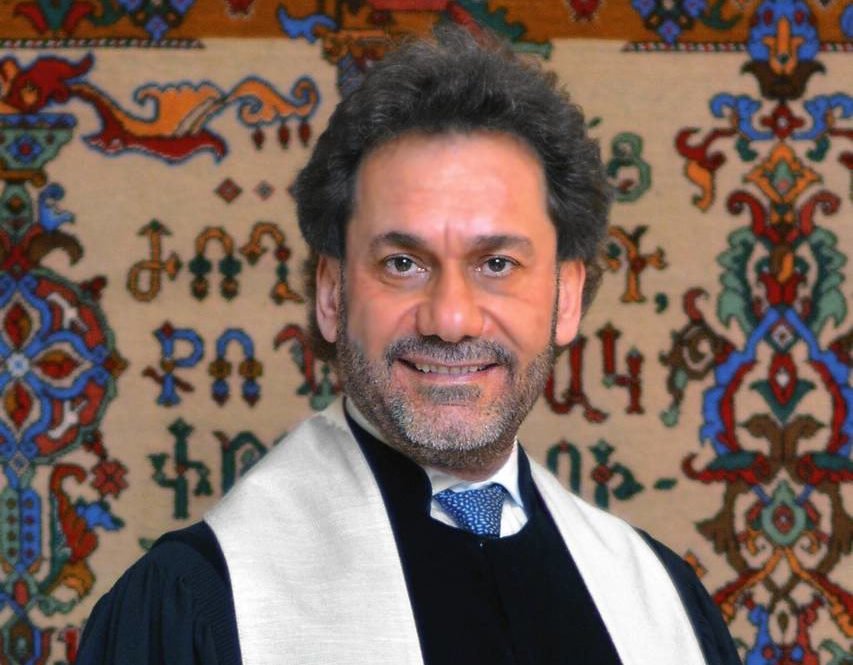
Rev. Dr. Haroutune Selimian
Please introduce yourself to us
I serve as the head of the Armenian Protestant community in Syria, chair of the Central Committee of the Union of Evangelical Churches in the Near East, chair of the Educational Council which runs six different schools in Syria, and senior pastor to Bethel Church in Aleppo, Syria, my home where I was born and raised. I completed my undergraduate education there. Then I continued my studies at the Near East School of Theology, American University of Beirut, and McCormick Theological Seminary of Chicago. Recently I received my PhD in Church History from University in Yerevan, Armenia.
What led you to ministry and working in the Church?
When I was discovering myself, I came into a direct encounter with God. So, I thought, to serve my people, is through the church, to better my people is to be an instrument in the hand of God, for peace and for reconciliation. The more room I have given to that aspect of myself the more I have started discovering God is using me. I saw humans and their relationships, and how the brokenness of humankind should be reconciled and restored. Coming from a past of genocide and war, I have a passion for peace building and being flexible to serve the most vulnerable among us. During the war in Syria, many of us adopted a “peace-theology” one that makes you focus on the raw-ness of the Gospel. The current conflict thought me, that “whatever we have preached during the peaceful time, now is the time to practice it, during the war!”
Can you detail the different projects that you were able to complete with the funding from Hungary Helps (HH)?
Over the last year and a half, we have been able to accomplish 6 community projects with the help of Hungary Helps Program.
Renovation of all six of the Armenian Evangelical schools in Syria. Four of them in Aleppo, one in Kessab (a historical territory for Armenians), and one in Damascus. The schools are all interfaith. Christian boys and girls with Muslim boys and girls working together to get a good education and make a difference one day in their communities.
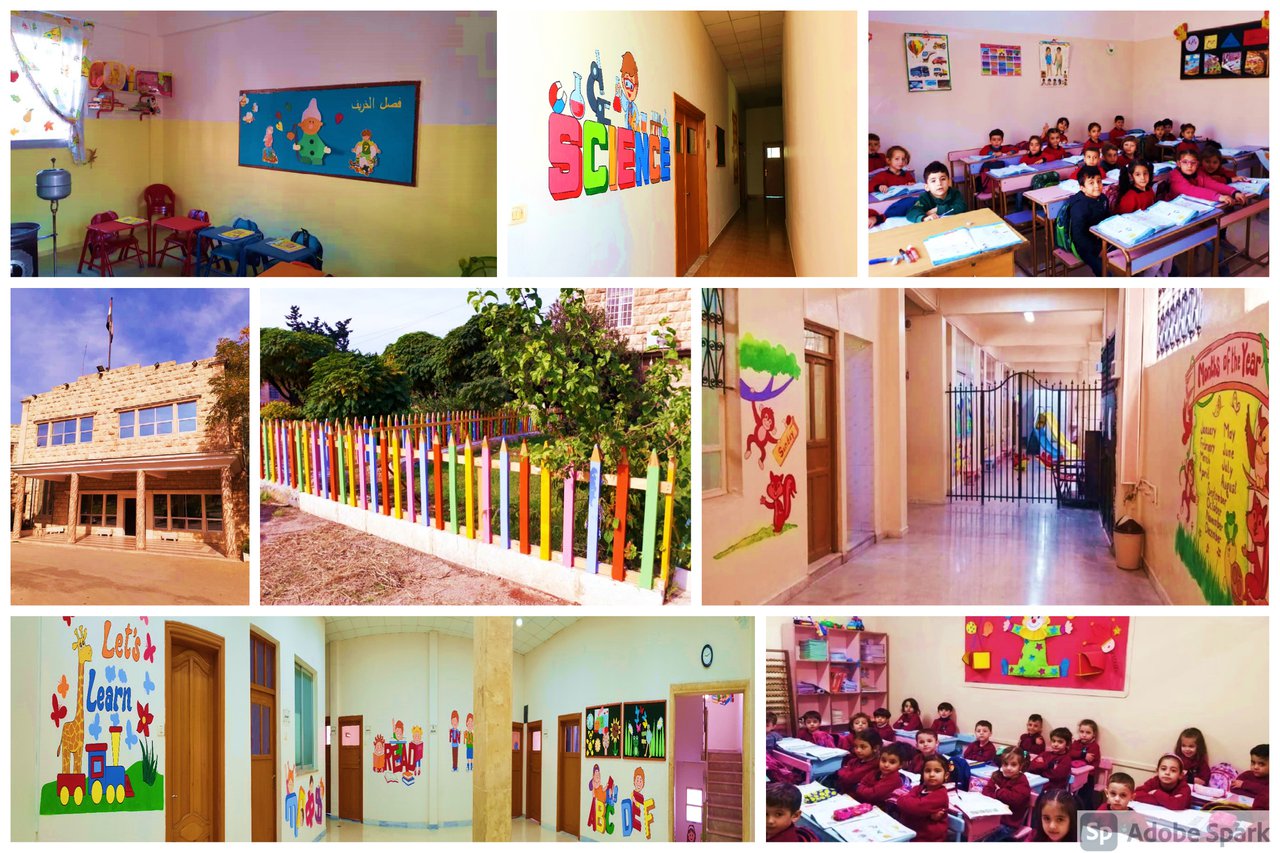
Six schools have been refurbished
School for Christmas
The students and teachers at the Damascus school of our Armenian partner church awaited Christmas under a roof in need of repairs, in dilapidated classrooms with inadequate heating. This matters because education is of key significance when it comes to the peaceful coexistence of various groups and religions in the Middle East. Our on-the-scene reporting covers the beneficiary of this year’s fundraising by the Reformed Educational Fund in the Carpathian Basin.
Reconstruction of both of the Armenian evangelical churches in Aleppo. During the war years these churches were almost completely destroyed. Emmanuel church is based in the center of the city, and the whole roof was destroyed. Similarly, the Bethel church was hit more than 4 times during the 10 years. This is the campus of the Armenian Evangelical headquarters, which I reside and have pastored for the last 25 years.
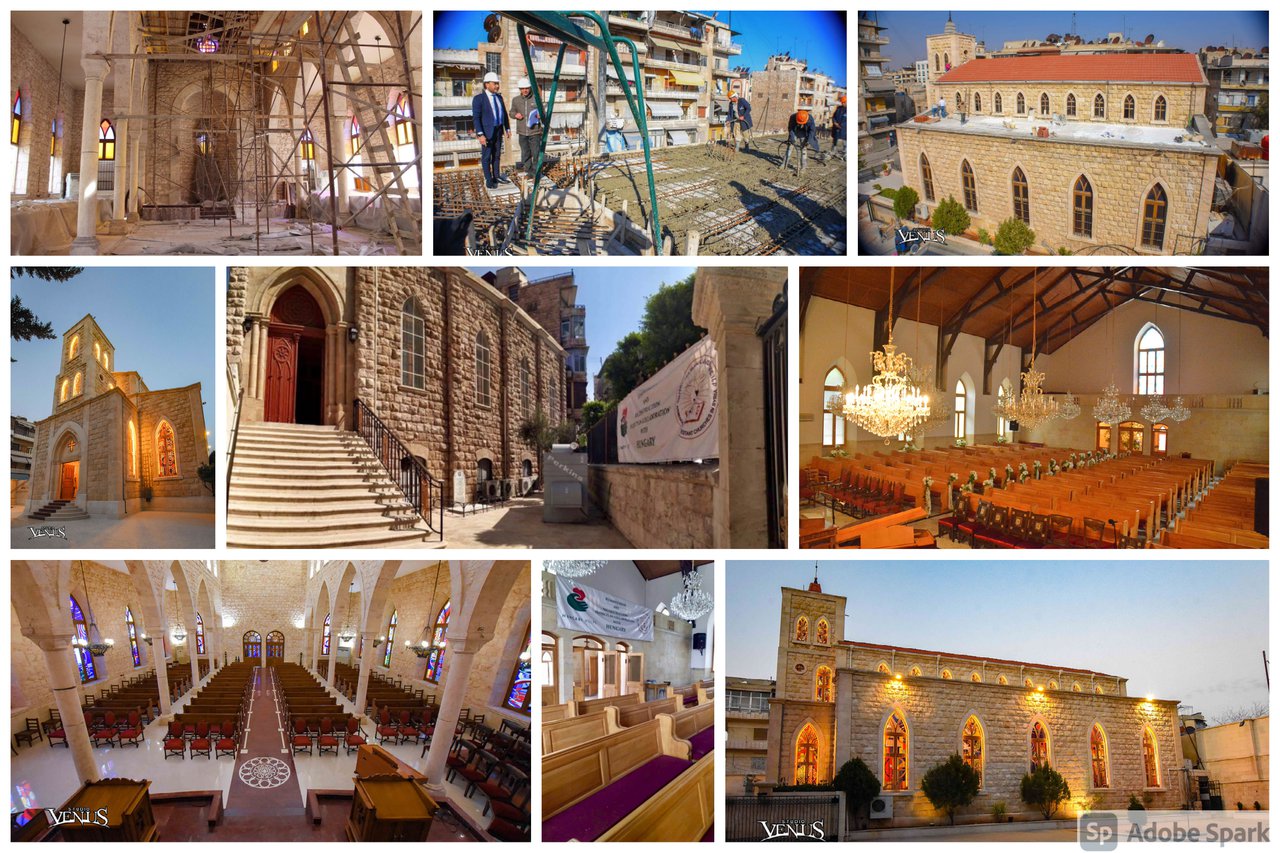
The Churches of Bethel and Emmanuel has been also renovated
Hope for Peace and Renewal
In celebration of the completion of major restoration, the Armenian Evangelical Emmanuel Church held a rededication service on 2 December 2018 in Aleppo, Syria. Hundreds of worshippers were present, as well as high-ranking religious, community, and state leaders. The RCH also shares this joyous celebration in spirit.
Restoring the Christian Endeavour summer camp. The Church has a very nice campus where all of the youth group, women auxiliaries, and Sunday school children go for summer retreats. That is a place where people get their spiritual nourishment. One of our camps was burned by ISIS during the war, and the space of recovery needed restoration. This year is the first year that the summer camp will be open since the renovation.
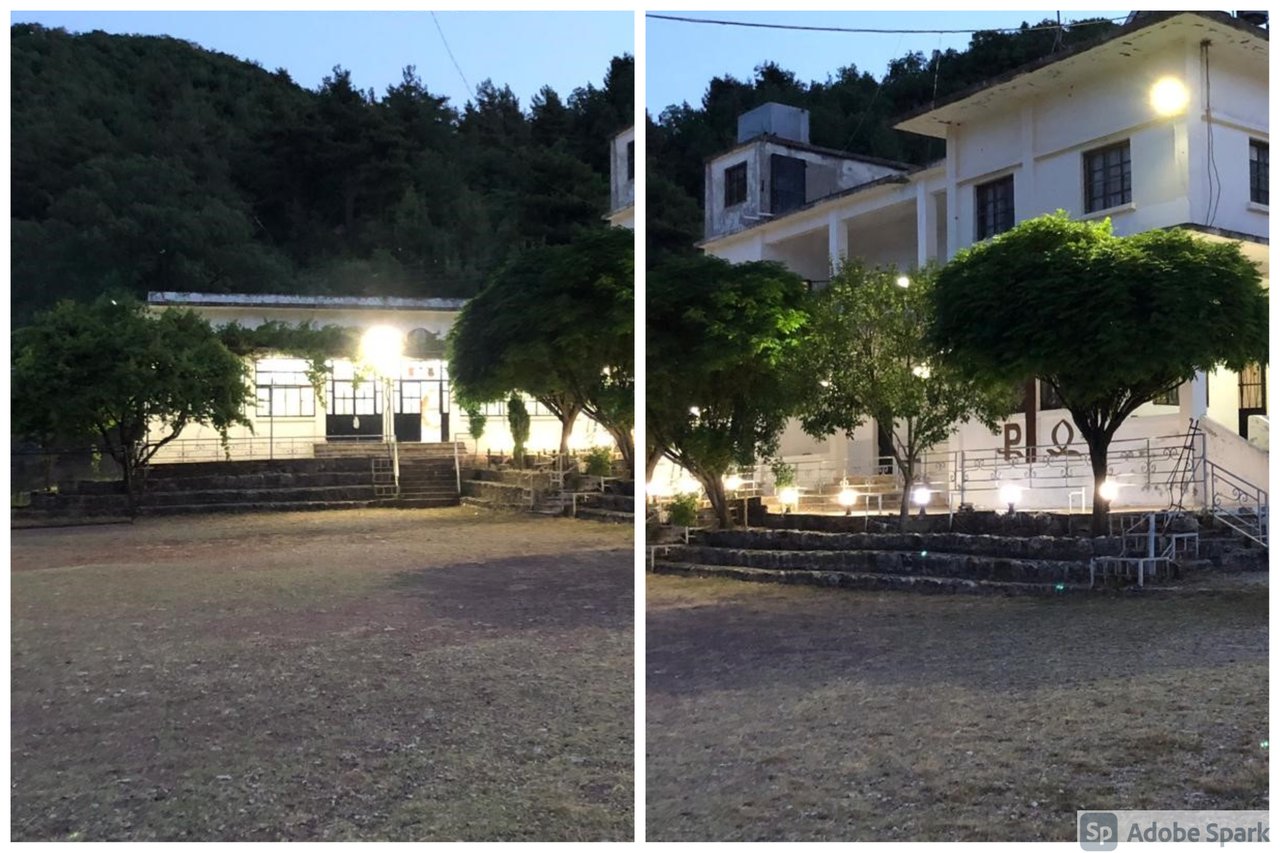
The summer camp in Kessab will receive youth groups again this year
Establishment of the new and expanded Armenian Evangelical Bethel Polyclinic. We needed a more spacious health care center to provide exceptional quality care for patients who were targets of the war. The vision of having this kind of polyclinic was thought of in the war years when we used to have so many victims of attacks in the neighborhood. Unfortunately, in those years, all the doctors left the country. Hospitals were targeted and they were damaged or destroyed, so the church campus was the place to accommodate all the people, especially the injured. So, we established a polyclinic in a very naive manner in the beginning to accommodate the injured people, but later we saw that there was an essential need to expand the space and services.
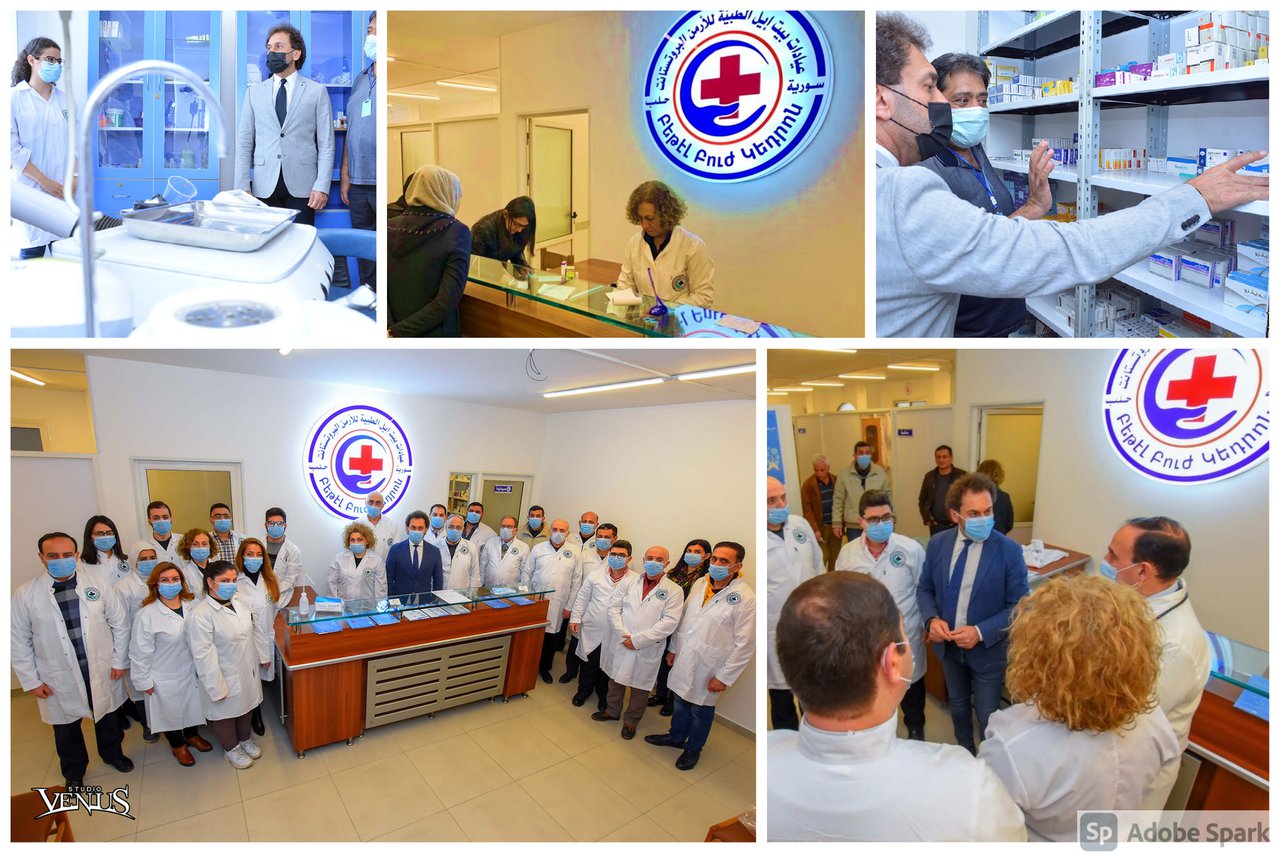
The Bethel Polyclinic plays a crucial role in the neighbourhood, especially in the days of the Pandemic
Building a community playground. This is a wonderful place for kids and the community at large to have a safe space for various activities. The Church has begun to implement some social cohesion projects at the playground. The war was one of the things that imprisoned kids in their places, in their homes and in the streets sometimes. They were out of the schooling system, so it was necessary to create a safe zone for the children.
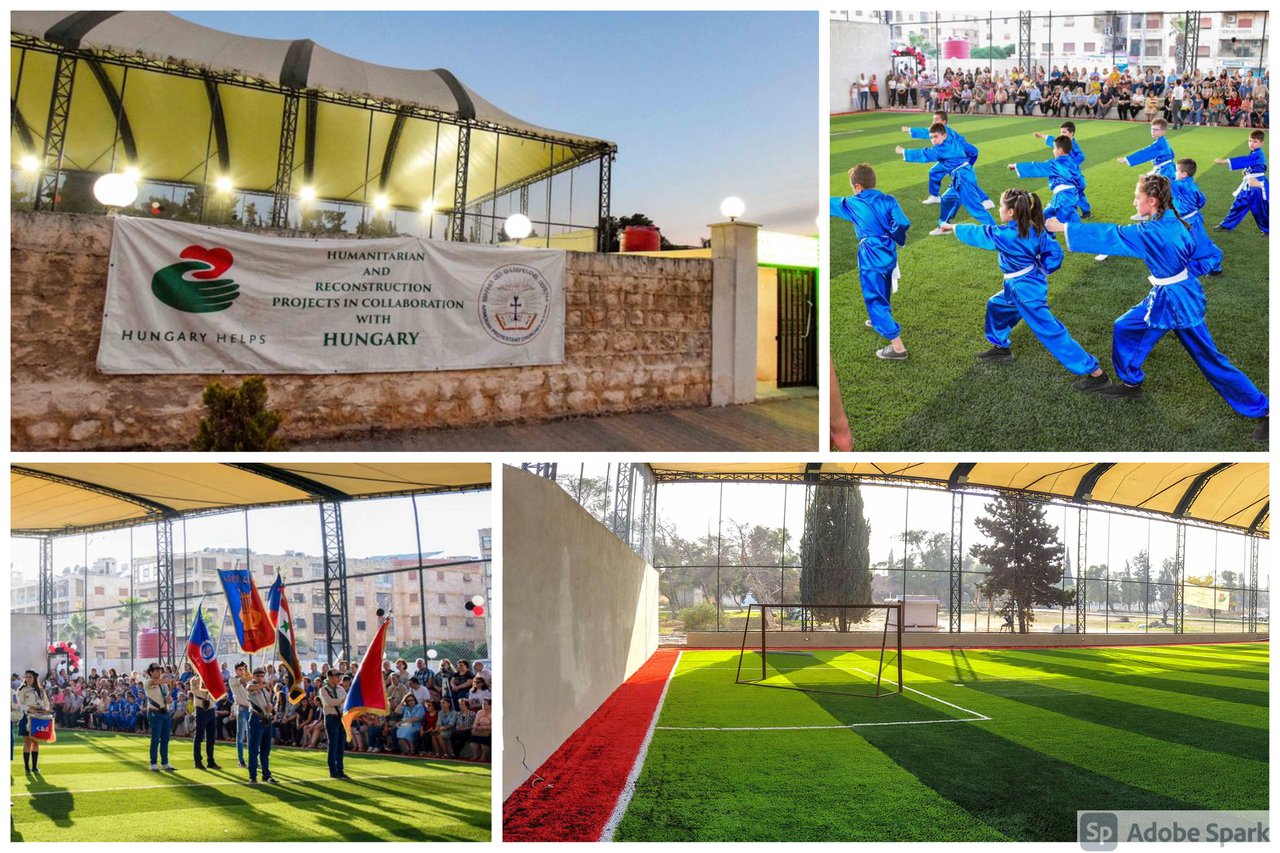
Official inauguration of the community playground took place in May
Constructing a community center for Bethel church. The community center provides the opportunity to use all the resources both human and financial with a special commitment for the care of our community members. This is the headquarters of the Armenian Protestant community in Syria. What used to be the size of the flat is now a huge space with offices, conference rooms, libraries, and a guest house.
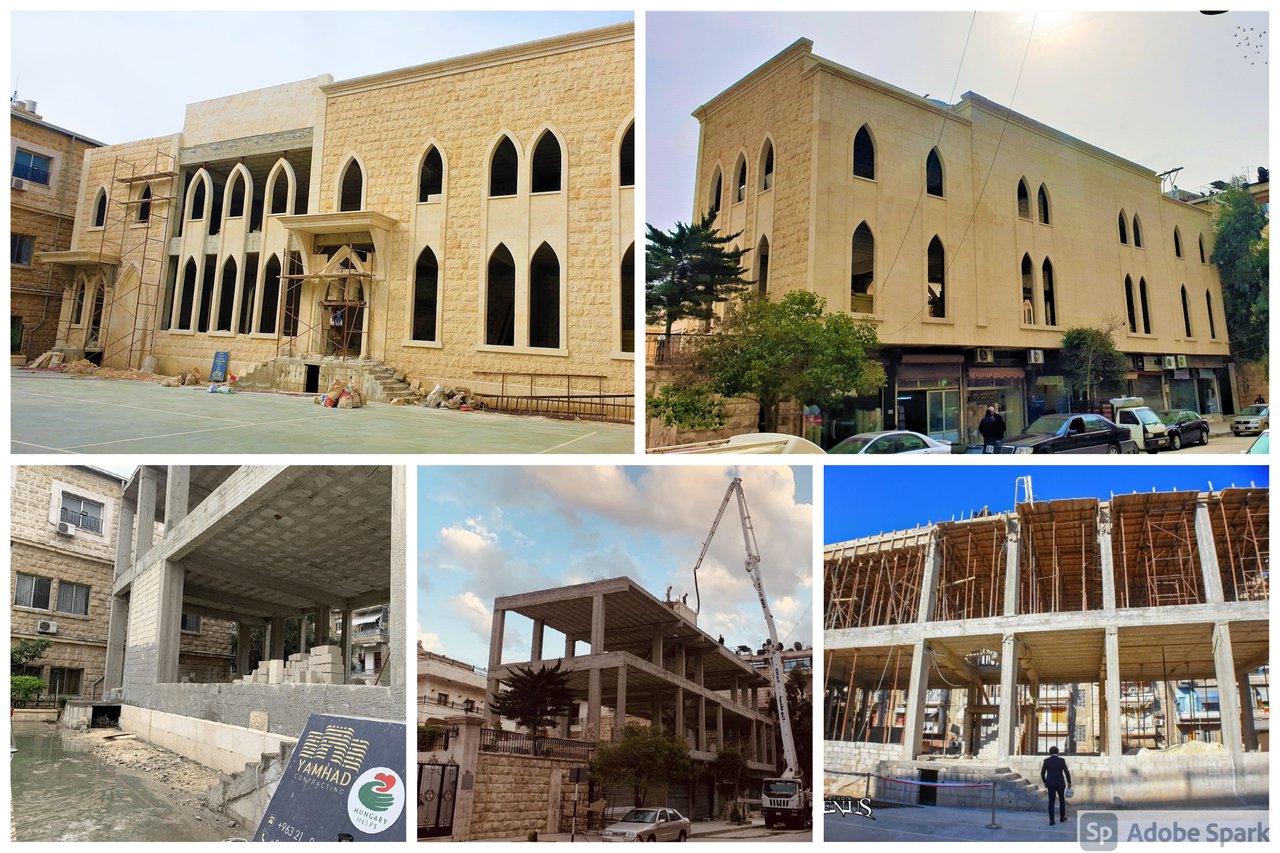
The Community Center at Bethel Church has been newly erected
What has the impact been from these projects?
The impact of the projects has offered a safe environment for our Christian families. Now they have a better chance to have a future in Syria. Otherwise, people see that there is no point in return under such circumstances. The situation should change to accommodate new life. Usually, the church is a leading figure in our community in the Middle East. When the church takes care of facilities, the sanctuary, the buildings, the school, the homes, and the youth they will know that their home is something worth returning to. Christians remaining in the region will act as an example in tolerance and peacebuilding in interfaith relations. The two major religions (Islam and Chrstianity) are sharing life together, they are in dialogue about life and how-to live-in harmony together. We are not only serving my local congregations but everyone that has had a need.
What about the interfaith dialogue and togetherness that has occurred from the war and through the work of the church?
Before the war, our communities were not mixed. Christians used to live by themselves, apart from Muslims, and Muslims lived apart from Christians. But during the war, people began to become mixed. Now Christians are living in the same neighborhood with Muslims. Many Muslims come to our church campus to receive hygiene boxes or to receive food parcels. You see Muslim students in our schools. They come to a Christian school to get a quality education and to learn Christian values and virtues which will help them to become better citizens. Plus, during the wartime, we have learned to serve those who do not look like us, and that is difficult. We often like to be with people of similar values. Now values are intermingled with each other. People usually ask that question. “Do we need Christians in the Middle East?” Many have encouraged evacuation. I believe that to have a more balanced and more humankind we as Christians we need to be close to the Muslim community. When Muslims live with Christians they work together, they live together, they share together, they become more tolerant, and this tolerance will help the West in the future. The Christian church survived two thousand years and more in Syria, the first church was the Damascus church. If this church survived and persevered for 2000 years with suffering and persecution, we are meant to stay. This war was not the first and it will not be the last. We belong in Syria, because this is our homeland too.
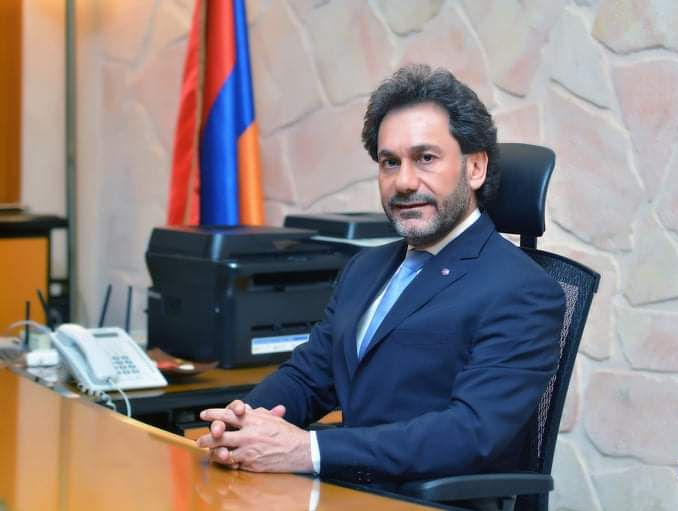
Please describe what it is like to be a minority religion in your country.
Many people think that we as Christian minority are persecuted in Syria by Syrian Muslims, that is not correct, we were never persecuted neither by the government nor the Syrian Muslims or the people of Syria. The persecution came when ISIS, the jihadists, came to Syria. When they came, they started persecuting not only Christians they persecuted Muslims as well. You know we always flourished in Syria as a Christian Church, and the West is not understanding this unfortunately. They think that we are here by force, we are not here by force, we are there by love, by will. I can't see myself in another home. I belong to Syria to the Armenian people, the survivors of the Armenian genocide, I belong to that community, I have mission, I have a calling, I have a belongingness, I have my family, I have my church, I have my people. In the interdenominational experience of Christian churches, I believe that it is a unique place for churches for different denominations to live together to serve together without discriminating. We live this every day. Not only for Christians, but also Muslims. We never discriminate against their faith. We are Syrians and we are sharing everything together. The good days and the bad days. The peaceful time and the war times. But we were together.
What do you think are some Christian values that are necessary for society?
The first thing I think is tolerance. Each human is created in the image of God, so our love and tolerance is because the image of God is in that person. The second value is empowering the other. It is very rare to empower those who do not belong to your family or denomination. Here we are opening to the maximum to include all of humanity in that scope. That empowerment is a Christian value that we should have. This is a unique virtue to Christians to open up ourselves to others.
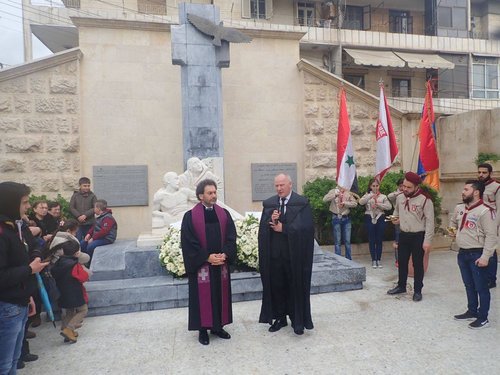
Bishop István Szabó, former president of the Synof of RCH and Rev. Selimian at the Bethel Church memorial of the Armenian Genocide in Aleppo in 2019
"Reading the signs of our times, we are especially concerned by the great human suffering and political difficulties that our people are facing in the Middle East. We have been greatly disturbed by the incidents of violence that innocent civilians and entire communities, especially Christians, have been subjected to. As “Ambassadors for Christ” in promoting peace and reconciliation, we strictly condemn and oppose any form of religious discrimination, oppression and persecution... Together we commit ourselves to support each other in this ministry and to develop our cooperation among the different areas of our Church life. Our commitment to Christian values, to human dignity for all, to just peace and reconciliation, to human rights of minorities, and to equal citizenship in our societies of all communities, irrespective of their religious and ethnic background, is unquestionable."
(Quote from the Memorandum of Commitment signed by RCH and the Union of Armenian Evangelical Churches in the Near-East during a visit of RCH's delegation in Lebanon and Syria in March 2019)
How do you think the partnership with the RCH could grow?
Because we not only try to base our partnership and friendship with RCH on material donations or supplies, but also sharing stories, we are sharing the influence of how the Gospel is affecting the lives of people. For instance, when I was in Hungary, I visited the refugee center. We are looking forward to a better relationship where we can continue to exchange youth groups again. This exchange showed us that this would help both partners understand each other better. We are living in different places and cultures. We are polarized, as far as the societies are concerned. But at the core we are very similar, but we need to bridge those differences to be on the right track. This is, I believe, a project for the future that we have to develop. Possibly a pastoral exchange programs could be developed to broaden and expand the vision of our pastors from Syria and bring a new perspective to the Western pastors coming to serve us. Then when needs arise, they see our needs and we see their needs. Maybe we don't have money but we have the faith to tell them, “get up and walk'‘.I believe that we are very much sincere in our connectedness with the RCH, and we are very happy about that. They have enriched the largest protestant church in Syria.
How is the church now? What is the situation with covid? What is the day-to-day like?
In addition to the six projects, the Church has continued to provide for the people of Syria. During the COVID-19 pandemic, since the Syrian government was not able to step in to assist citizens in the wake of the economic shutdowns, the church has had to fill this gap. They have provided hygiene products, masks, blankets, fuel, cash, and food parcels to anyone in their community that is in need. The church has also done some amazing work with HEKS (a RCH partner) to get all the school children the internet and technology that they need in order to complete their online coursework during the worst of the pandemic. Many schools said you need to go home, we said, “OK you go home, but we are going to teach you online,” and we started initiating special programs to be connected with the students and the children when they are away from the school. It is going into the detail of the life of the community, and we were there, we touched base when they were lonely and very much limited in their resources. As far as church, we only stopped in-person worship for a couple of months. The people in our community prioritize coming to church, singing, worshiping together, so we are trying to keep it safe.
Finally, who are your other Western partners and what would you put on their hearts?
Some of the other key partners are HEKS, Armenian Missionary Association of America (AMAA), Dorcas Aid International, Kerk in Actie (Church in Action) of the Netherlands, and Fellowship of Middle East Evangelical Churches (FMEEC). Collaboration and flexibility among these partners will result in stability for all communities, tending to each other's needs as they arise. We are sharing life together, that is why there is no one or two things that I will demand from our Western partners. We will try to be empathetic of one another. Then we can see our common challenges. Sometimes they say, “what are your challenges?” And I will say, “They are our challenges.” They are common challenges. And that is why we will continue to be journeying together in Christ.
Faith for Peace and Reconciliation
Haroutune Selimian, President of the Armenian Evangelical Community visited Hungary in 2018 and offered a public lecture in Budapest.